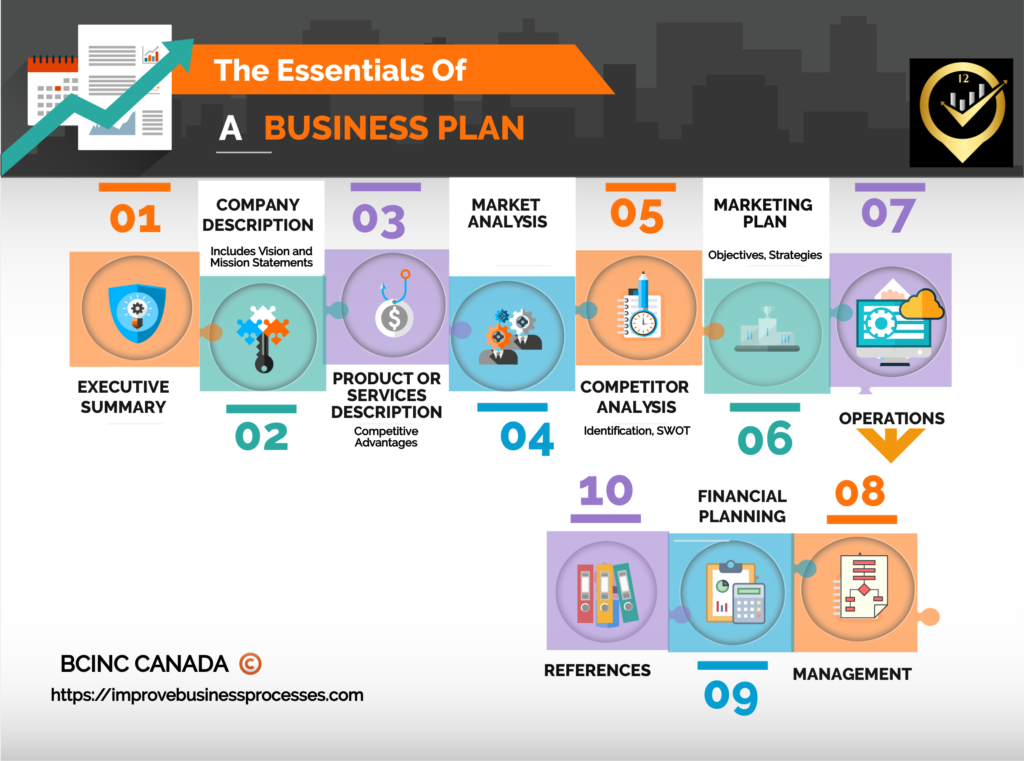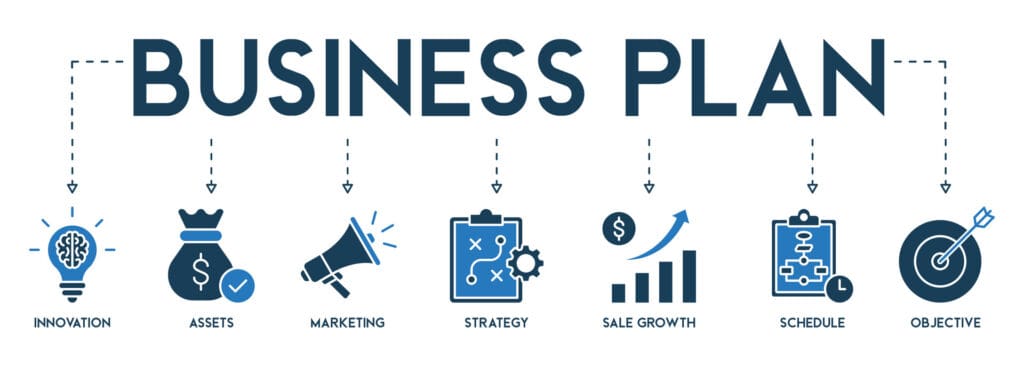What are the essentials of a business plan, and is there a format you really need to follow? At its core, a business plan is not just a document—it’s a decision-making tool.
It forces you to clearly define your direction, test assumptions, and think through how your business will actually operate, grow, and survive.
I often explain it this way: a GPS doesn’t drive the car for you, but without it, you’re guessing. A business plan works the same way. It shows you where you are, where you’re going, and what obstacles you’ll need to navigate along the way.
Why Create a Business Plan?
Running a business without a written plan often leads to overwhelm, constant firefighting, and stalled growth. You may feel like you know what you’re doing, but when decisions pile up, clarity disappears fast.
The importance of a business plan lies in its ability to:
- define your value proposition
- clarify priorities
- align short-term actions with long-term goals
- reduce reactive decision-making
I’ve worked with owners who resisted planning because they were “too busy.” In reality, the lack of a plan was exactly why they stayed busy.
A business plan should be treated as a living document, revisited and adjusted as your business evolves—not something created once and forgotten.
Key Components of a Business Plan
If you strip away the fluff, every effective business plan contains the same foundational elements.
The key components of a business plan include:
- your purpose and direction
- how you make money
- who you serve
- how work gets done
- how success will be measured
These components don’t need to be complicated, but they do need to be thought through logically.
How to Write a Business Plan?
Many business owners ask, “How do I write a business plan without overcomplicating it?”
Here’s the truth: there is no single perfect format. What matters is that the plan reflects your business reality, not a generic template.
When learning how to write a business plan, focus on:
- clarity over length
- realistic assumptions
- decisions you can act on
A plan that looks impressive but isn’t used is far less valuable than a simple plan that guides daily decisions.
How Do I Write a Business Plan for a Startup?
Startups benefit enormously from planning because assumptions haven’t yet been tested.
If you’re asking how do I write a business plan for a startup, the goal is to:
- validate the idea
- understand costs and pricing
- identify risks early
- avoid expensive missteps
I’ve seen startups fail not because the idea was bad, but because the planning skipped over operations, cash flow, or execution realities.
Business Plan Checklist for Startups
A business plan checklist for startups should ensure you’ve covered the essentials before investing significant time or money.
At a minimum, for startup readiness, your plan should answer:
- What problem are you solving?
- Who is your customer?
- How will you deliver the product or service?
- What will it cost to operate?
- How will you generate revenue?
If you can’t answer these clearly, the plan isn’t ready yet.
Types of Business Plans
Not every business needs a 40-page document.
Simple (Lean) Business Plan
Often used by small businesses and startups, a lean plan focuses on high-level clarity. Popular models (like the Lean Canvas) typically cover:
- problem and solution
- target customer
- value proposition
- revenue streams and costs
- key metrics
This format is effective when speed and flexibility matter.

Traditional Business Plan
A traditional plan is more detailed and often required for:
- financing
- investors
- regulated industries
It usually includes:
- executive summary
- company overview
- products and services
- market and competitor analysis
- marketing and operations plans
- management team
- financial projections
- references and appendices
Following each of these sections methodically will create a plan suited to your business, however, there is a lot of work required and the right questions need to be asked and answered.
Both formats (Lean and Traditional) work—the right choice depends on your objectives, not trends.
Best Practices for Creating a Business Plan
The most effective plans follow a few consistent principles.
Best practices include:
- grounding assumptions in data
- involving key stakeholders
- keeping language clear and practical
- revisiting and updating the plan regularly
One common mistake I see is outsourcing the entire plan and never engaging with it afterward. A plan only works if the owner understands and uses it.
Business Planning Mistakes to Avoid
Some mistakes repeatedly undermine otherwise good plans:
- treating the plan as a one-time exercise
- overestimating revenue
- underestimating costs and effort
- ignoring operations and execution
- failing to track progress
Avoiding these mistakes makes the difference between a plan that sits on a shelf and one that actually guides growth.
Unfortunately, many small businesses lack the skills to write their own plans and usually rely on the services of a company like BCINC to ensure that they ask and answer the right questions and assist with cumbersome industry and competitor research.
Conclusion: Key Requirements of a Business Plan
Understanding the essentials of a business plan is the first step toward building one that actually supports growth.
Whether you use a simple or traditional format, the real value comes from clarity, discipline, and follow-through. Templates can help—but thoughtful planning is what makes the plan work.
If you want help taking back control of your business or, creating or refining a business plan that fits your business—not a generic template—contact BCINC to get started.
FAQs for Essentials of a Business Plan
What are the essential sections of a business plan?
The essentials include a clear value proposition, target market, operations plan, management structure, and financial projections that guide decision-making and growth.
Why is a business plan important for small businesses?
A business plan provides clarity, reduces reactive decisions, and helps small businesses align daily actions with long-term goals.
How detailed should a business plan be?
It should be detailed enough to support decisions and funding needs, but simple enough to be used regularly and updated as the business evolves.
Can I write my own business plan?
Yes, but many owners benefit from guidance to ensure assumptions are realistic, gaps are identified, and the plan reflects operational reality.
How often should a business plan be reviewed?
At least annually, and more often during growth, major changes, or when performance starts to drift off track.
Helpful Resources for Business Planning

ROCKETBOOK Smart Reusable Notebook Wireless
For drafting, revising, and organizing planning ideas

VIZ-PRO Dry Erase Magnetic Board
Map workflows and bottlenecks visually
References
- Government of Canada – Business planning guidance: https://www.canada.ca/en/services/business/start.html
- BDC Canada – Business plan fundamentals: https://www.bdc.ca/en/articles-tools/start-buy-business/start-business/how-write-business-plan
- Small Business Administration (SBA 2022). Write your business plan. https://www.sba.gov/business-guide/plan-your-business/write-your-business-plan



